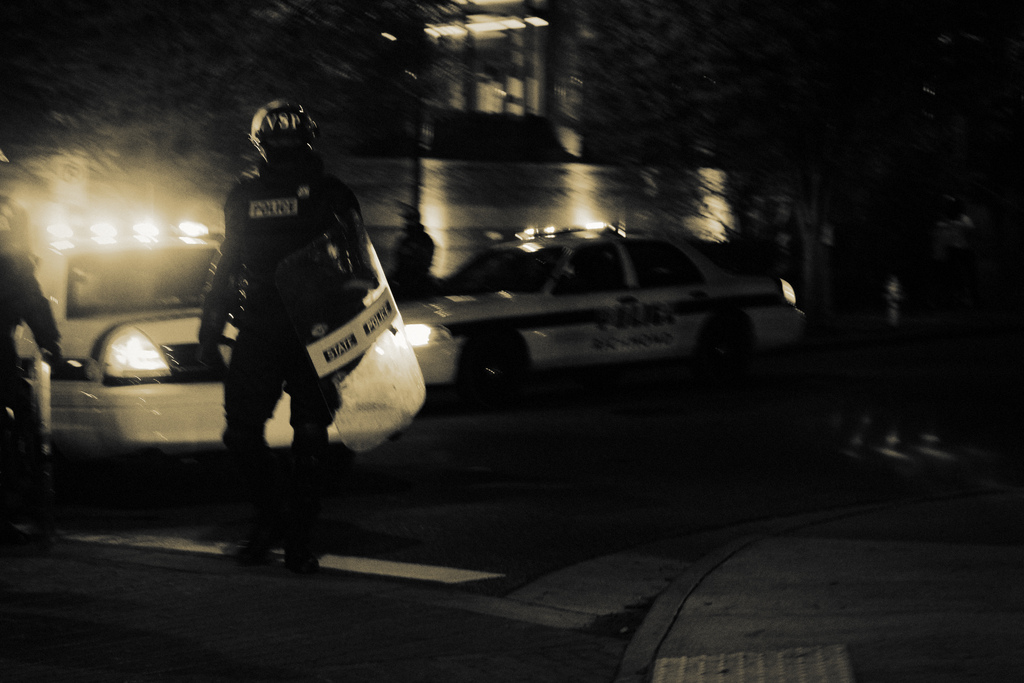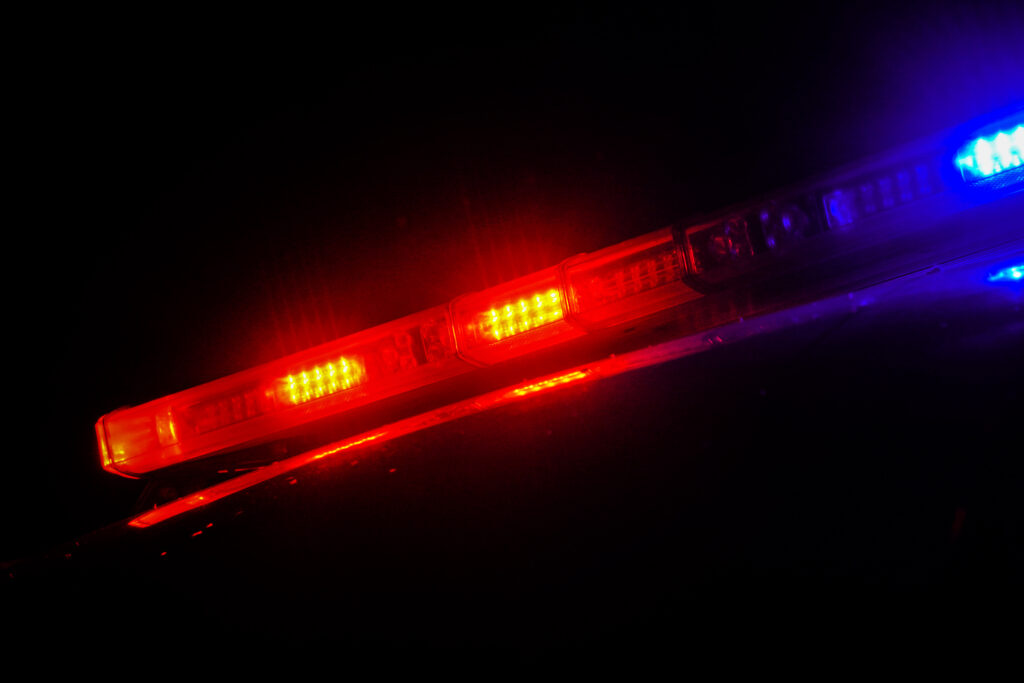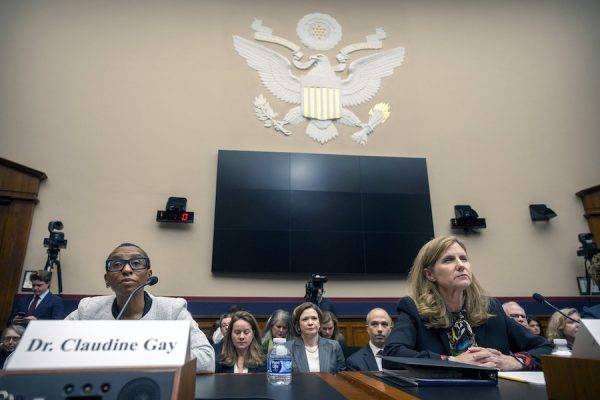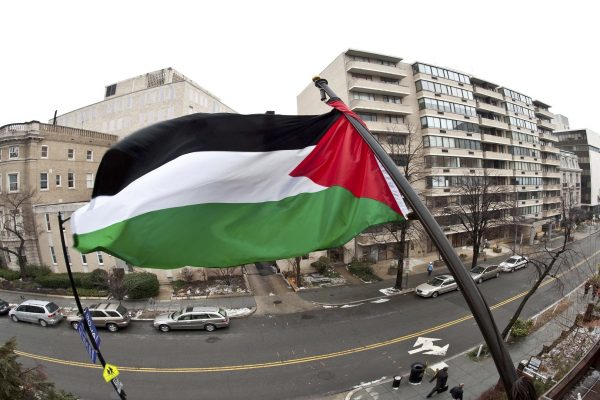The walls of the staircase of Yale Law School, where I teach, are covered with plain white sheets of paper emblazoned with names in black ink. Rekia Boyd. Michael Brown. Sandra Bland. Eric Garner. These names have lived on these walls since a group of students initiated a Say Their Names project in 2015. The group’s goal was to encourage those of us working and studying at Yale to engage daily with an issue that fundamentally implicates justice.
One path to abolition is to recenter policing’s fundamental nature as a public good.
However, the best way to solve the epidemic of police violence against black Americans is far from obvious, and it should not be surprising that the solutions advanced by communities of color often run counter to conventional solutions. In some communities marked by extreme levels of violent crime—those one would think most in need of police—residents are calling for a complete and total end to policing. Mychal Denzel Smith, author of Invisible Man, Got the Whole World Watching (2016), captured this sentiment in a piece he wrote for the Nation:
In 1966, James Baldwin wrote . . . , “the police are simply the hired enemies of this population. They are present to keep the Negro in his place and to protect white business interests, and they have no other function.” This remains as true today as it was in 1966, only now we have bought into the myth of police “serving and protecting” wholesale. What do you do with an institution whose core function is the control and elimination of black people specifically, and people of color and the poor more broadly? You abolish it.
Abolish the police? Unthinkable? Consider Chicago, where the homicide rate is among the ten most deadly in the United States, and the nonfatal shooting problem is even worse. Yet residents of Chicago’s most challenged neighborhoods still find it difficult to swallow the notion that they must endure proactive policing tactics in order to be “safe.” Many grassroots initiatives in the city have sought to prove that alternative methods of crime reduction can be more effective than policing. For example, the organization MASK hosts a free community picnic every day on a corner known for its violence.
As the example of MASK highlights, police abolitionists’ position and methods are more nuanced and compelling than their critics typically credit them with being. Mariame Kaba has spent decades in Chicago teaching about prison and police abolitionism, drawing on arguments advanced by Angela Davis in the 1990s. Kaba understands that it would be unrealistic to simply shift the burden of police abolition to victims of violent crime by asking them to not call the police, which is often how the movement is caricatured. Her abolition project is more complex: “For me prison abolition is two things: It’s the complete and utter dismantling of prison and policing and surveillance as they currently exist within our culture. And it’s also the building up of new ways of intersecting and new ways of relating with each other.”
I agree with Kaba: policing as we know it must be abolished before it can be transformed. One path to that goal is to recenter policing’s fundamental nature as a public good.
How we feel about whether policing exists is tied up with what kind of policing people believe the state is capable of producing, given their life experiences.
Aspects of public infrastructure such as highways, street lighting, and clean water are public goods. In technical terms this means goods that are nonrivalrous and nonexcludable: anyone can enjoy them without diminishing their supply, and no one in the relevant group (e.g., a given city or nation) can be excluded even if they cannot afford to pay. The state typically funds public goods through taxes because the state has a vested interest in making these goods available to its citizens and cannot rely on the market to provide them as they are not necessarily—or even ideally—profitable. National defense is a classic public good, and local policing similarly falls under the conceptual category. Unsurprisingly, most of us would think it extremely unwise—silly, even—to refuse national security or policing, just as it would seem ridiculous to forego street lights, clean water, or sidewalks.
Yet the advocacy of police abolitionists helps us see the limits of framing policing as a public good. How should we think about our public goods when they go bad? In the same way that the residents of Flint, Michigan, have a right to express outrage about the water they were provided, can’t we rightly object when the policing provided to us by the state fails our communities?
For example, New York’s former mayor Michael Bloomberg and former police commissioner Raymond Kelly argued that the city’s massive stop-and-frisk program—in which police stopped hundreds of thousands of residents, many unconstitutionally—largely benefitted the very people who complained about it. Bloomberg and Kelly claimed that the program kept violent crime at historic lows. But many of the individuals subjected to these searches—a significant number of whom were stopped multiple times a year—disagreed with this assessment. Their dissatisfaction gives credence to Elinor Ostrom’s prescient 1973 analysis that providing a policing service to some usually means doing a disservice to others. To make sense of the police abolitionists’ call, we must first appreciate that how we feel about whether policing exists is intimately tied up with what kind of policing people believe the state is capable of producing, given their life experiences.
Those who dismiss abolitionists’ call for an end to policing assume that policing necessarily prefigures public safety. To them it is nonsensical for residents of high-crime neighborhoods to say that they want less policing, as this is tantamount to saying that they wish violence would befall them. One problem is that the critics of police abolition define public safety very narrowly. Their primary concern is the police’s role in keeping us safe from each other, but they ignore the fact that security from government overreach and oppression is also a key element of public safety. Majoritarians such as Bloomberg and Kelly value freedom from private predation over security from state violence, an unsurprising position given that their social status insulates them from the state’s most intrusive manifestations, those endured daily by people of color and the poor.
When the public at large experiences the “good” of policing only by concentrating the costs of producing that good on a small group—such as black people, and particularly black men—it is hard to say that the good is “good” or even truly public. We need to create a kind of policing that we all can enjoy.
Police transformation requires deep thinking about what it means to say that a public good is both public and good. When one considers the racialized origins of policing in America—from its roots in nineteenth-century slave patrols to its build-up during the early twentieth century as an immigrant-control brigade—it is clear that a necessary first step to redeeming this public good is to find a new symbolic language for thinking about its role in society. This is particularly crucial with regard to the role that police play in generating our understanding of ourselves as citizens—noting that, in both historical examples above, police served to enforce strict limits on who could enjoy the rights of citizenship. Police officers are state authorities who play a critical role in helping people to decipher their environment and where they fit in society. Criminologist Ian Loader and sociologist Aogán Mulcahy put it this way:
[Police are] an interpretive lens through which people make sense of, and give order to, their world . . . a vehicle that enables individuals and groups to make sense of their past, form judgements on the present, and project various imagined futures. As an institution intimately concerned with the viability of the state . . . policing remains closely tied to the maintenance of ontological security, the production of subjectivities, and the articulation of collective identities.
British Commonwealth scholars have led the way in demonstrating this phenomenon empirically. By focusing on policing in Australia, for example, criminologists Ben Bradford, Kristina Murphy, and Jonathan Jackson examined how people’s views are modified by encounters with police. They found that fair treatment by police increases a person’s identification with national identity, while poor treatment undermines it. Bradford, Murphy, and Jackson conclude that police can be integral to how people think of themselves as citizens. In a related study, Bradford conducted extensive interviews with young men of color in London, determining that interactions with police were especially important for men whose color and immigration status make them feel already unsure of their position in society.
Can’t we rightly object when the policing provided to us by the state fails our communities?
Scholars of procedural justice note that people generally care much more about how they are treated by police than whether those police are effective crime fighters or make decisions that benefit them personally. People of all races and genders wish to be treated with dignity, respect, and concern for their rights; that this minimal expectation sets such a surprisingly high bar means that it offers a compelling starting point for thinking about police reform across conventional social barriers.
So, what can we do? In 2015 I had the honor of serving on President Obama’s Task Force on 21st Century Policing, along with a diverse group of ten other Americans drawn from police leadership, law, social justice initiatives, and NGOs. We created a document detailing fifty-nine recommendations to build trust and legitimacy in policing while continuing to advance public safety. Many of those recommendations focused on better training of police, attention to community policing, caring for the most vulnerable, focusing on officer safety and wellness, and ensuring accountability and oversight of police. In some ways the recommendations seem workaday or even anodyne. But in reality even the most basic among them—such as a recommendation that agencies be honest about their past, acknowledging “the role of policing in past and present injustice and discrimination and how it is a hurdle to the promotion of community trust”—has proven to be incredibly difficult for many if not most agencies. Further steps, such as holding officers criminally accountable for killing unarmed civilians, seem almost impossible.
Policing must reorient itself around a new set of goals; we must abandon the project of “proactive policing.” Too many officers and agencies proceed with their work as if the pursuit of crime reduction is self-justifying. Public safety, narrowly defined as crime reduction, simply does not provide a warrant for overly aggressive proactive policing approaches. Attention to co-production of public security with communities should be policing’s primary goal. Many, including many police officers, will think this recommendation radical. After all, the historically low crime levels that we enjoy today correlate at least in part with the innovation of holding policing agencies accountable for crime levels, rather than only their response times to victims’ calls. But the fact that public trust has not increased even while crime has plummeted over the last thirty years is a key indication that we took a wrong turn.
Strict adherence to constitutional law by police is both necessary and alone inadequate to solve the crisis we face. The Obama Justice Department’s Civil Rights Division initiated more pattern-or-practice consent decrees than any prior administration. These settlements sought to spur police reform by allowing departments to commit to reforming discriminatory patterns without having to admit wrongdoing. Such efforts are designed to bring police departments into compliance with constitutional guarantees, but constitutional compliance does not necessarily lead to public trust. Police lawfulness does not seem to be tightly connected to how people perceive the fairness of police actions, and therefore does not likely correlate to how much the public trusts police. The average citizen does not conflate lawfulness with rightfulness; in short, the public does not evaluate police actions through the same highly technical and morally neutral lens of legality that police and other legal authorities use. Instead people reference the procedural justice factors reviewed earlier to come to conclusions about whether police acted fairly. Obviously, police must bring their activities in line with constitutional minimums, but we must also demand that agencies pay attention to how they engage with citizens. Agencies must create policy with neighborhood residents, not for them. Agencies must be transparent and consistent. Police officers must act as agents for the principals they serve.
Disadvantaged communities ought not give up policing any more than they should give up public schools, electricity, or water.
Taking the agency–community relationship seriously implies a host of changes that are about more than having police meet the legal minimums. Some of this work can be done through legislation, but much of it will require new accountability accords between the police and the public. Los Angeles’ Board of Police Commissioners and Seattle’s Community Police Commission provide intriguing examples. In both cases civilians lead the way in setting policy goals and direction for the city’s policing agencies, rather than the other way around.
Probably the most important change we can make is to require policing agencies to take preservation of life seriously. Everyone’s life. A commitment to preserving life, in concert with no longer treating crime reduction as the highest goal, will necessarily rewrite the aims of policing. Officers currently treat traffic stops as necessary and perilous operations. If police work together with the communities they serve, it might become clear that stopping someone for a minor traffic violation is not even something police should be doing.
Disadvantaged communities ought not give up policing any more than they should give up public schools, electricity, or water. But likewise they must not trade security for majoritarian conceptions of public safety. If police cannot find a way to change in ways that will better serve the people, then, yes, their footprint should be reduced. But I still think we can do better than that impoverished second best.
Editors’ Note: Listen to a podcast in which Tracey Meares and Vesla Weaver discuss this essay here.









